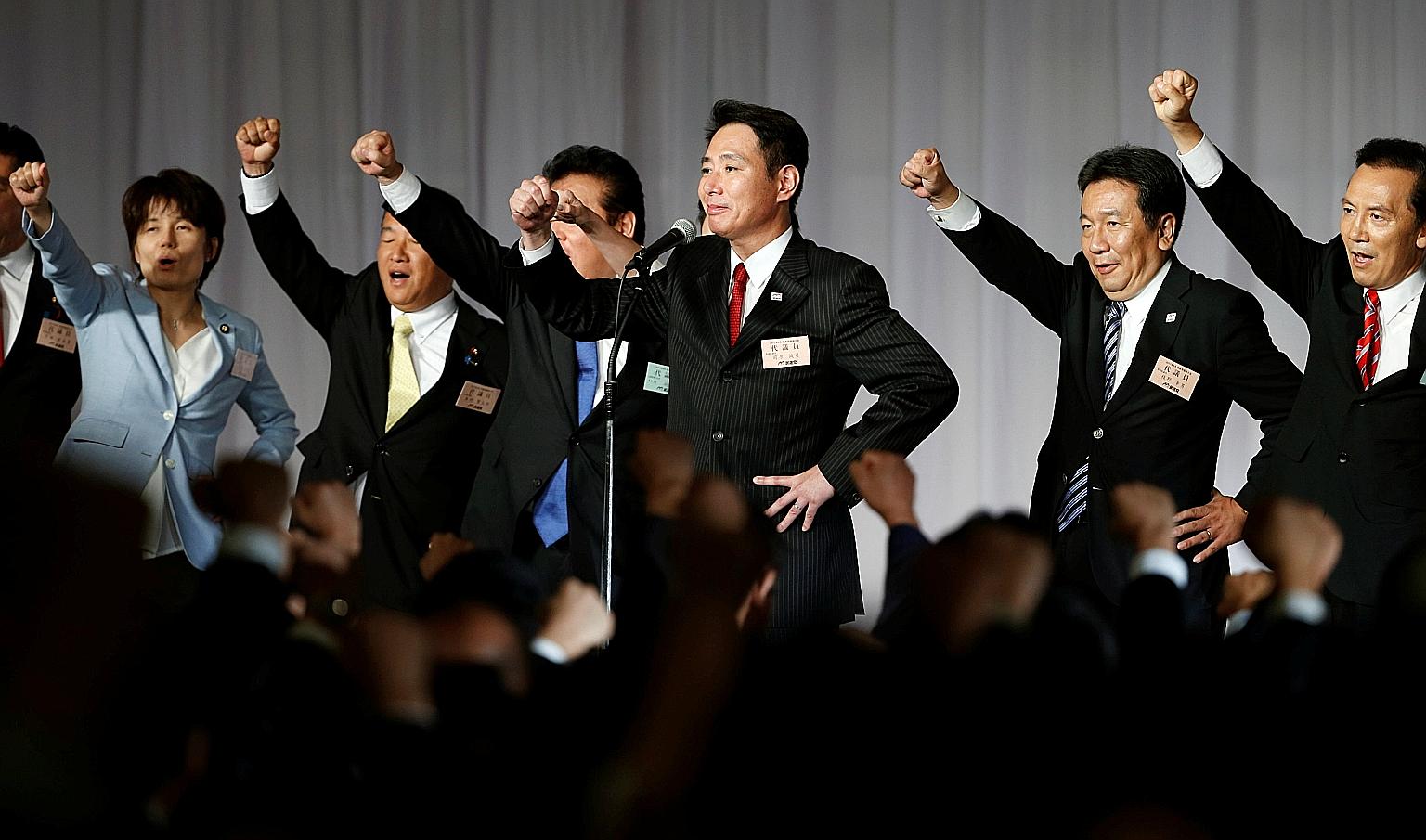It was just eight years ago, in 2009, that a wave of discontent against the ruling establishment swept the traditional opposition Democratic Party of Japan (DPJ) to power.
But its disunity and bungling led to a rapid fall from grace, and it was ousted from power three years later. It has never fully recovered, even as it tries to breathe new life into its ranks through attempts such as a rebranding of sorts to become the Democratic Party (DP).
Its humiliating proposal last week to allow the nascent Kibo no To (Party of Hope) to absorb its candidates for a snap election on Oct 22 is likely to be the nail in the coffin for the 21-year-old party, analysts told The Straits Times.
"I am not optimistic about DP being able to rise from the ashes again," said University of Tokyo political scientist Yu Uchiyama.
DP chief Seiji Maehara, a hawkish former foreign minister, said last week that his party would not field any candidates for the polls. Last Friday, an internal party circular to the 230 candidates it had intended to field for the snap election urged them to apply for Kibo no To's endorsement instead.
Dr Jeffrey Kingston of Temple University Japan said: "DP was a zombie party that has been put out of its misery. Finally, we're witnessing a long-promised realignment."

In an opposition scene crowded with small parties, DP has long been the bulwark against the Liberal Democratic Party (LDP), which has ruled nearly uninterrupted since its founding in 1955. There were three prime ministers over DP's short reign , which coincided with the 2011 Fukushima nuclear disaster.
Ms Yuriko Koike's week-old party, which shares positions with LDP on key issues such as constitutional revision, has become the rallying point for opposition groups. Last Saturday, an alliance was struck between her party and a second opposition party, Nippon Ishin no Kai (Japan Innovation Party), led by Osaka Governor Ichiro Matsui.
Mr Maehara's gambit, however, has effectively splintered DP, made up of liberals and conservatives. Its official party line had been against constitutional revision and more hawkish security legislation, in contrast to Ms Koike's party.
She has made it clear who calls the shots since the de facto merger with DP. "Policies are created by the Party of Hope, not agreed between us and others," she said, adding that a strict vetting process would ensure that DP candidates spoke with the same voice.
DP's party brass put up a unified front over the bold move to join hands with Ms Koike, who quit LDP last year to run for Tokyo governor.
"No matter how good the product is, it is of no use if it can't find a buyer," said Mr Maehara last Thursday. His party's support ratings have remained rooted in the single digits. It had 88 out of 475 lawmakers in the Lower House, which was dissolved last Thursday, and has 49 out of 242 seats in the Upper House. Only five DP candidates were elected to the 127-seat Tokyo assembly in July.
Research fellow Ippeita Nishida of think-tank Sasakawa Peace Foundation says that the developments have put DP's liberal candidates "at critical point".
The left wing is said to be working to launch its own party instead.
Over the weekend, DP members, including Mr Takayuki Ochiai, a one-term Lower House lawmaker in Tokyo, said that they would rather run as independents than join the Party of Hope.
"What choice do voters have if the leading opposition upholds the same ideology as LDP?" he told a news conference, saying it was an "emergency situation".
DP candidate Hiroshi Kamiya, 49, who will contest in Hokkaido's Iwamizawa city, said he would not join the Party of Hope "even if it gave him a stepping stone into politics".
Furthermore, Mr Maehara's tie-up with Kibo no To has ripped up DP's pact to avoid three-corner fights with the left-wing Japanese Communist Party, whose chief Kazuo Shii scathingly said that it was a "serious act of betrayal".

